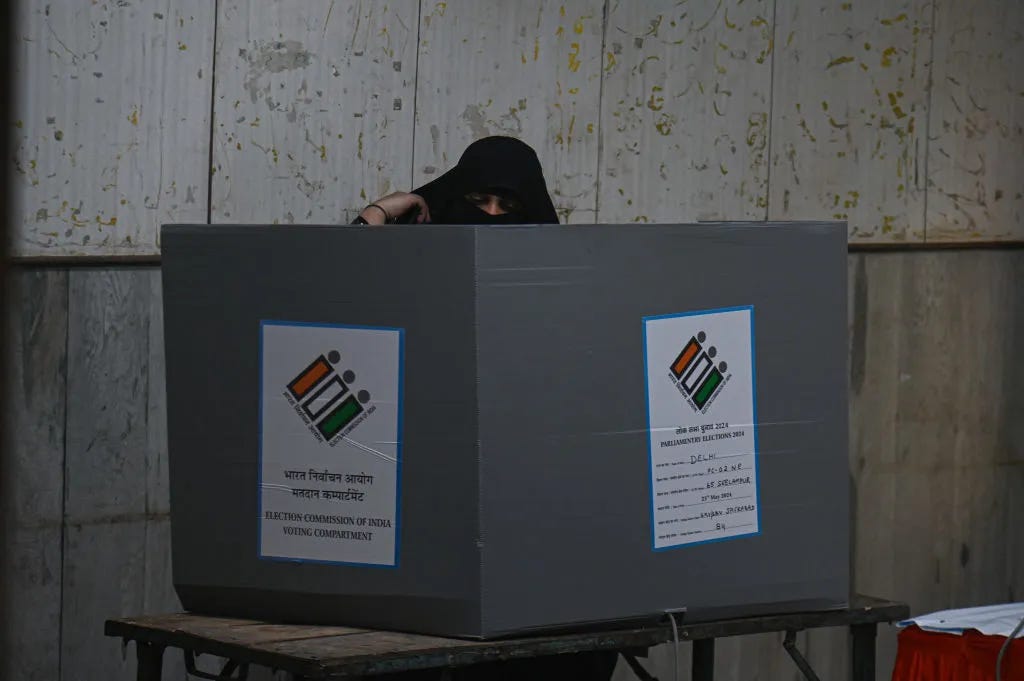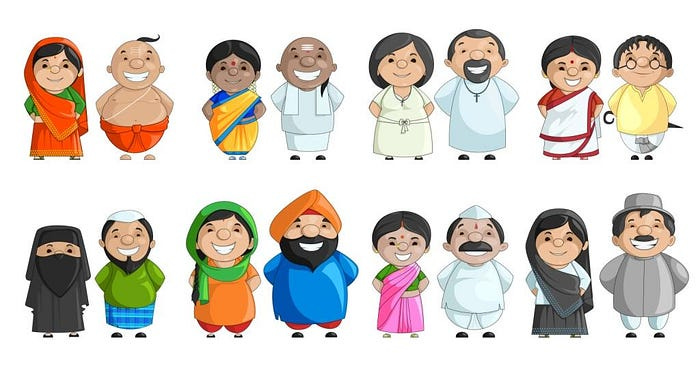Muslim’s in Modi’s India: Under Pressure?
Response to Ismat Ara’s “A Modi Win Will Only Mean More Trouble for Indian Muslims”

Muslim’s in Modi’s India: Under Pressure?
In her compelling, if a little provocative, article for Time, captioned “A Modi Win Will Only Mean More Trouble for Indian Muslims”, Ismat Ara attempts to highlight the escalating challenges faced by Indian Muslims under Prime Minister Narendra Modi's leadership. She describes how anti-Muslim rhetoric and actions have become more prominent during election campaigns, citing personal experiences and broader societal trends. Ara recounts being targeted by the Bulli Bai app, illustrating the severe harassment faced by outspoken Muslim women. She also discusses how Modi's speeches often contain veiled references to Muslims as "infiltrators," further polarizing the electorate.
Ara's concerns are underscored by the resurgence of conspiracy theories like "Love Jihad" and the alarming rise in hate speech documented by the ‘India Hate Lab’.She fears that another victory for Modi's BJP could exacerbate the marginalization and discrimination against Muslims, highlighting instances where government policies appear to favour Hindu interests at the expense of Muslim rights. Interestingly, her piece is silent about the persistent and strident anonymous Twitter trolls who label Sikhs as 'Khalistanis'. This omission overlooks another facet of India's complex religious dynamics, where the Sikh community also sometimes faces targeted harassment and unfounded accusations, adding to the broader discussion on minority rights in the country.

My Counterview
Historical Context of Secularism in India
The term “secular” was introduced into the Indian Constitution's Preamble by the 42nd Amendment in 1977. However, India's secularism has always been nuanced, balancing the country's diverse religious landscape. It implies no state religion, equal treatment of all religions, and the right to religious freedom.
India's Unique Constitutional Protections for Minorities
India’s Constitution is unique in granting specific fundamental rights to religious and linguistic minorities—rights not extended to the majority community. Articles 29 and 30 ensure minorities can preserve their distinct cultures and establish educational institutions. This preferential treatment is justified to protect minority identities within India's diverse society. Importantly, these provisions remain untouched, underscoring the nation's commitment to an inclusive and equitable democracy. This framework exemplifies India's dedication to maintaining its pluralistic ethos, ensuring equal opportunity and protection for all its citizens.
Perceived Favoritism and Its Consequences
Over the decades, there has been a perception that policies intended to uplift minorities, particularly Muslims, have sometimes led to unintended favoritism. This includes postponing the Uniform Civil Code (UCC) and implementing affirmative action perceived as biased. These actions gradually shifted India's secular credentials to a quasi-secular state.
Modi’s Approach to Secularism
Since 2014, the Modi Government has aimed to restore the bearings towards what it views as true secularism. This includes:
Uniform Civil Code: While not yet implemented, the debate has been reignited, emphasizing equal laws for all citizens.
Triple Talaq: The 2019 law criminalizing triple talaq addressed gender injustice within the Muslim community.
Abrogation of Article 370: Removing the special status of Jammu and Kashmir aimed at integrating the region with the rest of India.
Citizenship Amendment Act (CAA): This act provides fast-track citizenship for persecuted minorities from neighbouring countries, excluding Muslims, to address historical anomalies and aid persecuted groups.
Legal and Institutional Measures
The Modi administration has also focused on reforming institutional biases:
Central Waqf Laws: Measures to ensure transparency and fairness in the administration of waqf properties.
Aligarh Muslim University: Reviewing its minority status and reservation policies to align with secular principles, of this institution which is centrally-funded.
Addressing Criticisms
Critics, like Ismat Ara, argue that these measures disproportionately affect Muslims and promote Hindu nationalism. However, supporters contend that these steps are necessary to correct historical imbalances and establish true secularism.
Summing Up— Middle Ground
The Modi Government’s approach to secularism aims to restore balance and ensure equal treatment for all religions, sparking both controversy and support. This reflects a commitment to a truly secular Republic, as envisioned by the Founding Fathers of India's Constitution. As the nation—and indeed the world—awaits the outcome of the protracted Lok Sabha elections on 4th June, it is crucial for all Indians to work towards an inclusive and harmonious society, respecting the principles of equality and justice. The final phase of voting is set to conclude tomorrow, 1st June.
For further reading, see Ismat Ara’s article on Time and my detailed analysis on the broader implications of India's political landscape in my March 2023 article here.




